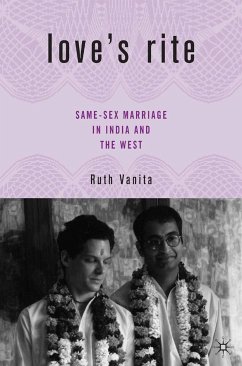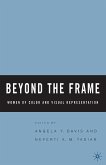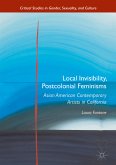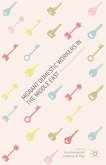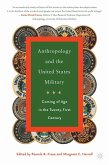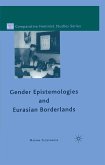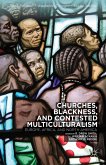Dieser Download kann aus rechtlichen Gründen nur mit Rechnungsadresse in A, B, BG, CY, CZ, D, DK, EW, E, FIN, F, GR, HR, H, IRL, I, LT, L, LR, M, NL, PL, P, R, S, SLO, SK ausgeliefert werden.
Hinweis: Dieser Artikel kann nur an eine deutsche Lieferadresse ausgeliefert werden.
and the Indian religious tradition, shows just how deeply rooted the idea of homosexuality really is in the Hindu tradition and how subtly and imaginatively Indian attitudes toward same-sex unions have evolved over the centuries, even as new social, cultural, and affective realities have come into being. Vanita offers a marvelously global perspective on our own 'gay marriage' debates - one characterized by profound historical understanding, impeccable scholarship, and a rare and delightful precision of feeling." - Terry Castle, editor of The Literature of Lesbianism: A Historical Anthology from Ariosto to Stonewall
"It's here that contemporary India comes across as a heterogeneous, pluralistic and perfect setting where the modern gay and lesbian identity is being forged in the furnace of the turmoil of industrial India. Read and be enlightened. Be enlightened and be educated about a great tradition that presents itself as an equal contributor of modern civilization. I urge you to read and keep this book carefully for it offers you a useful foundation to build a happier life. A life that knows its past can offer you a more secure future." - Ashok Row Kavi, gay activist and founder of Bombay Dost
"Ruth Vanita brings to same-sex love not clenched-teeth ideology, aggressive self-assertion hiding deeper insecurities, or the anguish of marginalization, but an effortless combination of empathy, moral conviction, and deep cultural sensitivity. This is an excellent work of scholarship that also makes delightful reading." - Ashis Nandy, Director, Center for the Study of Developing Societies, Delhi, and author of The Intimate Enemy: Loss and Recovery of Self Under Colonialism

